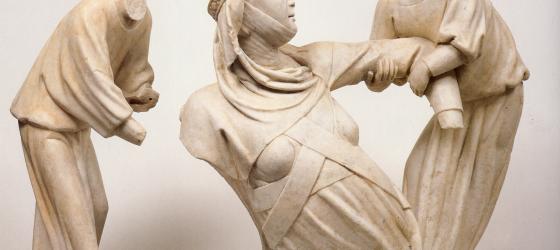This project links the Universities of Genoa, Trento and Naples "Federico II." It aims to investigate the phenomenon of the reuse of medieval sculpture in the Modern Age (15th-18th centuries), which has so far been substantially neglected by critics in favor of a monographic study of the reuse of ancient sculpture.
During the Middle Ages, civic and family traditions were established, but above all, long-lasting religious, administrative, legal and political structures with a strong identity character came into being. This helped form a heritage with which later eras had to measure themselves. In many cases, this "comparison" with the past occurred precisely through the reworking of medieval sculpture and its reuse in different architectural and/or sculptural contexts.
The three research units thus aim to map episodes of reuse from the regions in which they occur. The identification and in-depth study of a number of case studies will also make it possible to analyze - with the help of historical, documentary, literary and figurative sources - the different modes and purposes of reuse, from the merely utilitarian to the more complex ones in which reuse conveys specific cultural, political and religious messages or enhances the aesthetic aspects of individual works. will also make it possible to virtually reconstruct the settings, both original and modern, of the works investigated. The use of new 3D technologies will also make it possible to virtually reconstruct the settings, both original and modern, of the works under investigation.
Planned research outputs are: participation in national and international conferences and the organization of a final conference, which will allow the research team to engage with the scientific community and discuss methodological issues, and the creation of an open access database. It is planned to publish the proceedings of the conference and a volume with outlines and essays to present the material collected and analyzed.
Among the goals set is also the activation of a considerable number of postdoctoral fellowships to promote the careers of young scholars, who will have the opportunity to work within complex research groups and develop knowledge and skills in new areas of study such as the digital humanities.
Programma di ricerca
FONDO INTEGRATIVO SPECIALE PER LA RICERCA (FISR) – FISR 2019
Soggetti coinvolti (unità operative/partner)
Università degli Studi di Napoli Federico II: Paola Vitolo
Università degli Studi di Trento : Laura Cavazzini
Università degli Studi di Genova: Clario di Fabio
Ente finanziatore
Ministero dell'Istruzione, dell’Università e della Ricerca (MIUR)
Totale finanziamento
803.977,70 €
